Tunisia
Two leaders of Tunisia's Islamo-conservative Ennahdha party, the bête noire of President Kais Saied, were arrested on Tuesday evening, nearly five months after the arrest of the movement's historic leader Rached Ghannouchi, the party said.
The two arrested leaders are Mondher Ounissi, Ennahdha's interim president since Mr. Ghannouchi's imprisonment, and the head of its consultative council, Abdelkarim Harouni, the party said in statements posted on its Facebook page.
The authorities have not commented on the arrests.
Denouncing what it saw as an attempt by the authorities to "denigrate the movement and its leaders", Ennahdha claimed that the arrests were aimed at diverting attention from the serious socio-economic crisis Tunisia is experiencing.
Another Ennahdha leader, Hamadi Jebali, was questioned by police on Tuesday in connection with administrative appointments he made while head of government, before being released.
Mr. Ghannouchi, 81, was arrested on April 17 and remanded in custody following statements in which he claimed that Tunisia would be threatened with "civil war" if left-wing parties, or those based on political Islam such as his, were eliminated.
On May 15, he was sentenced to a year's imprisonment for "apologie du terrorisme" in another case.
Mr. Ghannouchi is the most prominent opposition figure to have been imprisoned since President Saied's coup de force in July 2021.
He headed the Parliament, which was frozen and then dissolved by Mr. Saied.
The day after his arrest, the authorities closed his movement's offices throughout the country.
Since the beginning of February, the authorities have imprisoned more than 20 opponents and prominent figures, including former ministers and businessmen.
President Saied, accused by the opposition of authoritarian tendencies, described those arrested as "terrorists", claiming that they were involved in a "plot against state security".
After his coup, Mr. Saied had the Constitution revised to establish an ultra-presidential system at the expense of Parliament.



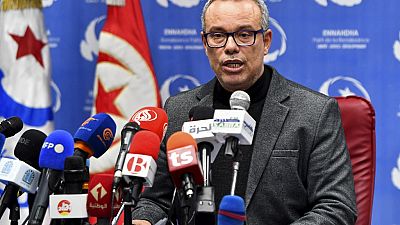

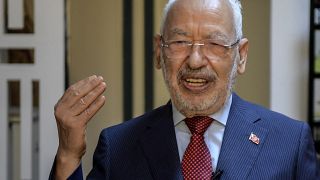
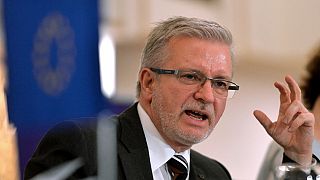
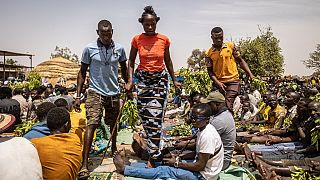
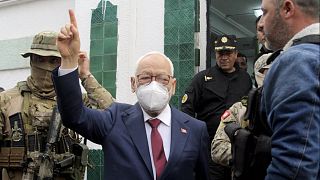
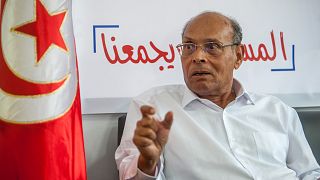
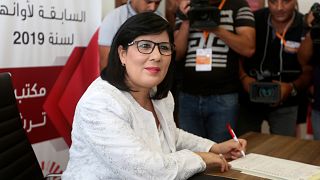



02:23
Cameroon: Mixed reactions in Yaoundé after Biya announces bid for another term
Go to video
Togo protest crackdown raises fears of worsening political crisis
01:01
Chad’s former Prime Minister appeals to Macron after two months in detention
00:52
Nigeria’s Peter Obi to contest 2027 election, opposition coalition in jeopardy
01:01
Ecuador recaptures fugitive drug kingpin 'fito' after dramatic raid
01:00
Detained Chadian opposition leader Succes Masra begins hunger strike